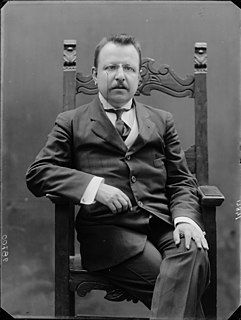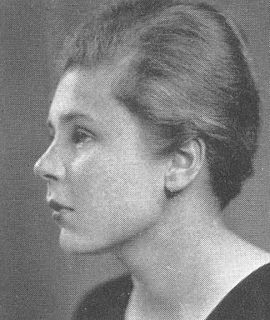A Quote by Soren Kierkegaard
It is easy to see, though it scarcely needs to be pointed out, since it is involved in the fact that Reason is set aside, that faith is not a form of knowledge; for all knowledge is either a knowledge of the eternal, excluding the temporal and historical as indifferent, or it is pure historical knowledge. No knowledge can have for its object the absurdity that the eternal is the historical.
Related Quotes
History is valuable, to begin with, because it is true; and this, though not the whole of its value, is the foundation and condition of all the rest. That all knowledge, as such, is in some degree good, would appear to be at least probable; and the knowledge of every historical fact possesses this element of goodness, even if it posses no other.
Knowledge is a burden if it robs you of innocence. Knowledge is a burden if it is not integrated into life. Knowledge is a burden if it doesn't bring joy. Knowledge is a burden if it gives you an idea that you are wise. Knowledge is a burden if it doesn't set you free. Knowledge is a burden if it makes you feel you are special.
In India there was a sense of time that does not tick with modern clocks, just as there is a knowledge that is not gained through science and empirical experiments. In the modern West knowledge is of objective, finite particulars in historical time. India recognizes that kind of useful information: it calls it "lower knowledge." Higher knowledge (paravidya) proceeds differently, or rather it doesn't proceed at all but enters history full-blown on the morning of a new creation.
All knowledge that is about human society, and not about the natural world, is historical knowledge, and therefore rests upon judgment and interpretation. This is not to say that facts or data are nonexistent, but that facts get their importance from what is made of them in interpretation… for interpretations depend very much on who the interpreter is, who he or she is addressing, what his or her purpose is, at what historical moment the interpretation takes place.
When speaking of a "body of knowledge" or of "the results of research," e.g., we tacitly assign the same cognitive status to inherited knowledge and to independently acquired knowledge. To counteract this tendency a special effort is required to transform inherited knowledge into genuine knowledge by revitalizing its original discovery, and to discriminate between the genuine and the spurious elements of what claims to be inherited knowledge.









































